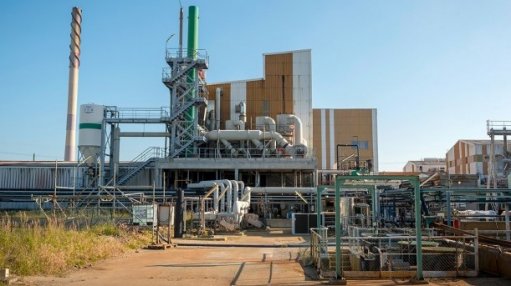
Critical minerals and precious metals miner Sibanye-Stillwater on Wednesday announced the termination of a key commercial supply contract for its Sandouville nickel refinery in France.
The cancellation is part of a shift to address ongoing losses at the refinery and to prepare the refinery for the company’s new precursor cathode active material (pCAM) production initiative.
The Sandouville refinery, acquired by Sibanye-Stillwater in 2022 with the aim of producing nickel sulphate for the European battery market, is transitioning towards producing pCAM. This follows promising results from a recent scoping study and the ongoing prefeasibility study for the GalliCam project, which aims to repurpose the refinery’s existing chloride processing infrastructure to produce pCAM.
As part of the termination agreement, Sibanye-Stillwater will incur a cost of $37-million. The refinery will continue refining and selling its existing inventory into the first quarter of 2025, while negotiations to terminate other related contracts are ongoing.
“Despite the significant operational and cost improvements achieved recently, the Sandouville refinery remains loss-making,” said Sibanye-Stillwater CEO Neal Froneman.
“We thank our partners for their understanding and consideration in allowing for the consensual cancellation of the supply agreement.”
He stated that Sibanye was excited to be progressing with its battery metals strategy of developing downstream exposure to Europe's battery metals value chain.
The GalliCam project offers the Sandouville refinery an exciting brownfield alternative to leverage the existing chloride facility and skills-base into producing pCAM for the European market, using a different feed source - mixed hydroxide precipitate (MHP) - to the nickel matte currently being refined at the Sandouville refinery.
The novel process that has been conceptualised and designed by Sibanye’s internal team in the European region will enable pCAM to be produced directly from MHP in a chloride medium, allowing for fewer production steps, lower energy consumption, reduced carbon emissions, and generation of fewer waste products per tonne of pCAM compared to existing sulphate-based processing routes. Using this chloride-based process is expected to contribute towards competitive pCAM production costs from Sandouville.
Progress on the GalliCam project includes the successful laboratory-scale production of pCAM and a patent application for the novel pCAM process filed in July. Construction of a pilot plant for the pCAM precipitation process is underway, with testing scheduled to begin by the end of the third quarter.
Sibanye-Stillwater said it would continue its consultation with local stakeholders in France as part of the permitting process for the GalliCam project. ![]()